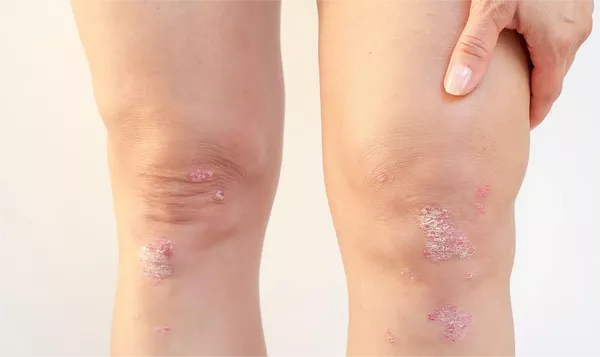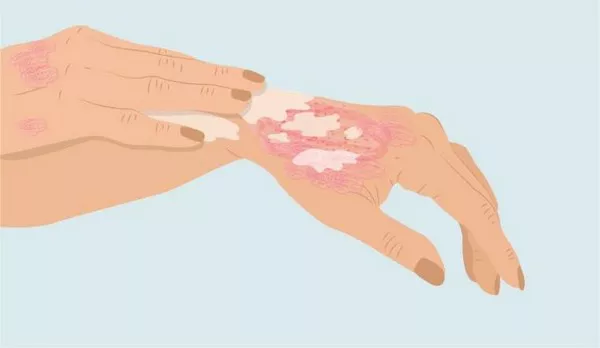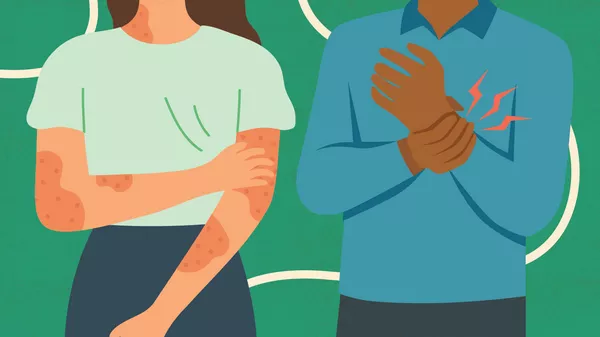Beta blockers, a class of medications primarily used to manage cardiovascular conditions, have been reported to potentially trigger or exacerbate psoriasis in some individuals. Psoriasis is a chronic autoimmune skin condition characterized by red, scaly patches, often causing discomfort and affecting quality of life. Understanding the link between beta blockers and psoriasis involves delving into the mechanisms of action of these drugs, their impact on the immune system, and the biological processes underlying psoriasis.
What Are Beta Blockers?
Beta blockers, also known as beta-adrenergic blocking agents, are medications that reduce blood pressure by blocking the effects of the hormone epinephrine, also known as adrenaline. By blocking the beta receptors on cells of the heart and blood vessels, these drugs cause the heart to beat more slowly and with less force, thereby reducing blood pressure. They also help to open up blood vessels to improve blood flow.
There are two main types of beta receptors: beta-1 (β1) and beta-2 (β2). Beta-1 receptors are primarily found in the heart, while beta-2 receptors are located in various tissues, including the lungs, liver, and skeletal muscles. Beta blockers can be selective (primarily affecting β1 receptors) or non-selective (affecting both β1 and β2 receptors).
Common Uses of Beta Blockers
Beta blockers are prescribed for a variety of conditions, including:
- Hypertension (high blood pressure)
- Angina (chest pain)
- Heart failure
- Arrhythmias (irregular heartbeats)
- Myocardial infarction (heart attack)
- Migraines
- Anxiety
While effective in treating these conditions, beta blockers can have several side effects, including fatigue, cold hands and feet, weight gain, and more pertinently, potential skin reactions such as psoriasis.
Understanding Psoriasis
Psoriasis is an autoimmune disease that causes rapid skin cell production, leading to scaling on the skin’s surface. This scaling typically develops into patches that may crack and bleed. The most common type of psoriasis is plaque psoriasis, which results in dry, raised, red skin lesions (plaques) covered with silvery scales. Psoriasis can also cause nail changes, joint problems (psoriatic arthritis), and is associated with other health conditions such as cardiovascular disease, depression, and diabetes.
Mechanisms Linking Beta Blockers to Psoriasis
The exact mechanism by which beta blockers may induce or exacerbate psoriasis is not fully understood. However, several hypotheses exist:
Immune System Modulation:
Beta blockers can affect the immune system in ways that might trigger psoriasis. Psoriasis is primarily driven by T-cell mediated immune responses. Beta blockers might influence T-cell activity and other immune pathways, potentially leading to the activation of psoriasis in predisposed individuals.
Interference with Adrenergic Receptors:
Beta blockers inhibit the action of epinephrine and norepinephrine on beta-adrenergic receptors. These neurotransmitters are involved in various physiological responses, including modulation of the immune system. By blocking these receptors, beta blockers might disrupt normal immune regulatory mechanisms, contributing to the development or worsening of psoriasis.
Genetic Predisposition:
Individuals with a genetic predisposition to psoriasis might be more susceptible to triggers, including medications like beta blockers. Genetic variations in the adrenergic receptor pathways could potentially make some individuals more sensitive to the immune-modulating effects of beta blockers.
Inflammatory Pathways:
Beta blockers may influence inflammatory pathways involved in psoriasis. For example, they might alter the production of cytokines—proteins that mediate and regulate immunity and inflammation. An imbalance in cytokines like tumor necrosis factor-alpha (TNF-α), interleukin-17 (IL-17), and interleukin-23 (IL-23) is known to play a crucial role in psoriasis. Beta blockers might exacerbate this imbalance, leading to psoriatic flare-ups.
SEE ALSO:What Are the First Symptoms of Psoriatic Arthritis?
Clinical Evidence
Clinical studies and case reports have documented instances of beta blockers triggering or worsening psoriasis. For example, a study published in the “Journal of the American Academy of Dermatology” highlighted several cases where patients developed psoriasis shortly after initiating beta blocker therapy. In some cases, discontinuation of the beta blocker led to improvement in psoriasis symptoms, further suggesting a link.
In another study, researchers found that patients with psoriasis who were treated with beta blockers experienced more severe symptoms compared to those not on these medications. This study, published in “Dermatology,” suggested a correlation between beta blocker use and the severity of psoriasis.
Management of Psoriasis in Patients on Beta Blockers
For patients with psoriasis who require beta blockers for their cardiovascular condition, managing the skin disease can be challenging. Here are some strategies that may be considered:
Switching Medications:
If a patient develops psoriasis after starting a beta blocker, a healthcare provider might consider switching to an alternative medication. Calcium channel blockers or ACE inhibitors are potential alternatives that do not have the same association with psoriasis.
Topical Treatments:
Topical treatments, including corticosteroids, vitamin D analogues, and calcineurin inhibitors, can help manage psoriatic lesions. These treatments can be applied directly to the affected areas to reduce inflammation and slow down skin cell turnover.
Systemic Therapies:
For more severe cases of psoriasis, systemic therapies such as methotrexate, cyclosporine, or biologic agents targeting specific immune pathways (e.g., TNF-α inhibitors, IL-17 inhibitors) may be necessary. These medications can help control psoriasis by modulating the immune system.
Lifestyle Modifications:
Lifestyle changes, such as maintaining a healthy diet, managing stress, and avoiding known psoriasis triggers (e.g., smoking, alcohol), can also help improve symptoms and reduce flare-ups.
Regular Monitoring:
Patients on beta blockers who have psoriasis should be regularly monitored by their healthcare provider. This allows for timely adjustments to the treatment regimen if psoriasis symptoms worsen.
Conclusion
The relationship between beta blockers and psoriasis highlights the complexity of drug-induced skin conditions and the need for personalized medical care. While beta blockers are essential for managing certain cardiovascular conditions, their potential to trigger or exacerbate psoriasis in susceptible individuals necessitates careful consideration by healthcare providers. Through a combination of alternative medications, targeted treatments, and lifestyle modifications, it is possible to effectively manage psoriasis in patients requiring beta blocker therapy. As research continues to uncover the underlying mechanisms, a better understanding of this connection will hopefully lead to more effective strategies for prevention and treatment.
Related Topics:



























